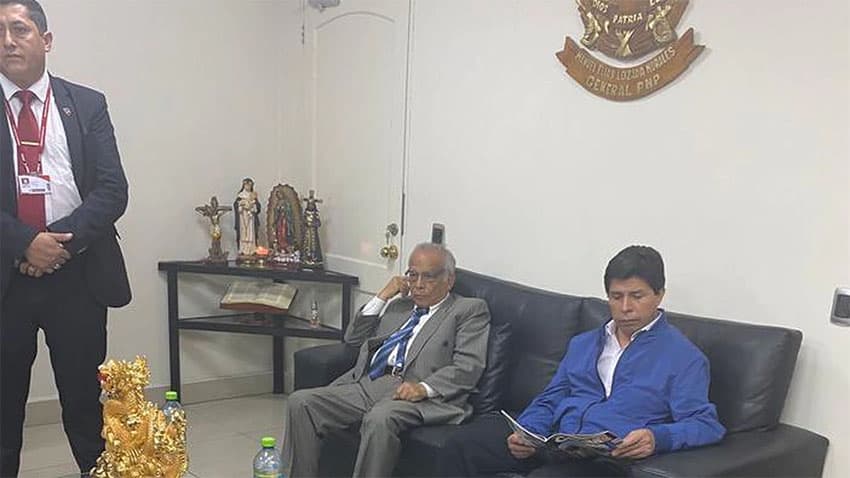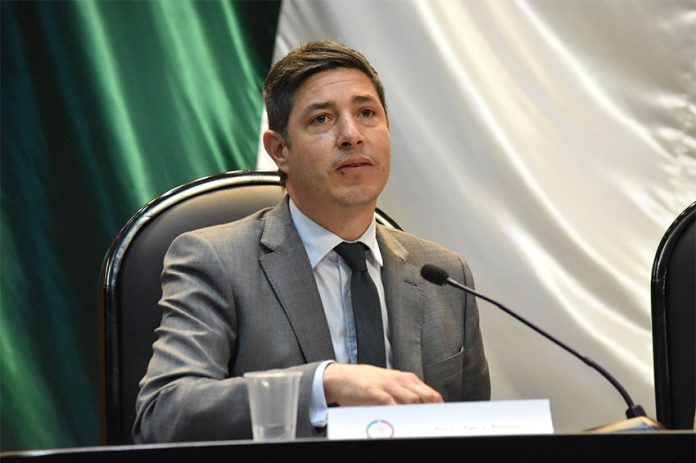Peruvian authorities have expelled Mexico’s ambassador to the country and accused Mexico of interference in Peru’s affairs, hours after Mexico granted asylum to the family of ousted President Pedro Castillo.
The government of Peruvian President Dina Boluarte declared Ambassador Pablo Monroy “persona non grata” on Tuesday, giving him 72 hours to leave the country, or until Friday. In his Wednesday morning press conference, President López Obrador said that the ambassador would return to Mexico in the course of the day, correcting an earlier statement that he had already arrived. As of Thursday, Monroy was still in Peru.
AMLO condemned Peru’s decision to expel Monroy, calling it a “blunt, police-style” move that “has nothing to do with diplomacy.”

Mexican authorities confirmed that Castillo’s wife, Lilia Paredes, had arrived in Mexico in the early hours of Wednesday morning, accompanied by the couple’s two children.
“Our country has honored its tradition of asylum,” Mexican Foreign Minister Marcelo Ebrard wrote on Twitter. “I applaud the effectiveness of Ambassador Pablo Monroy’s efforts in complex circumstances.”
Peruvian authorities arrested Castillo for “rebellion” on Dec. 7, hours after he attempted to dissolve Congress ahead of a scheduled vote on his impeachment for corruption. AMLO later confirmed that Castillo had tried to seek asylum in the Mexican embassy in Lima prior to his arrest.
On Tuesday evening, Peru’s Foreign Ministry released a statement acknowledging that Lilia Paredes had been granted asylum in Mexico, but asserting that she remained under investigation for “criminal organization.” Peru granted Paredes safe passage to leave the country, but reserved the right to later demand her extradition from Mexico to face charges.
Hours later, Peru ordered Monroy’s expulsion, stating that “the repeated expressions of [Mexico’s] highest authorities about the political situation in Peru … constitute an interference in the internal affairs of the country and therefore violate the principle of non-intervention.”
Tensions between Mexico and Peru have been mounting steadily since Castillo’s ouster. Last week, AMLO joined the leaders of Colombia, Argentina and Bolivia in condemning what they called the “antidemocratic harassment” of Castillo, and insisted that Mexico still viewed Castillo as the legitimate president of Peru.
President Boluarte has attempted to defuse Peru’s political crisis by advancing a plan to hold early elections in April 2024, which was approved by the Peruvian Congress on Tuesday morning. The country is currently gripped by political instability and protests in which at least 26 people have died. Before his expulsion, Ambassador Monroy had been working to support an estimated 450 Mexican citizens stranded in the country.
On Wednesday morning, the Mexican Foreign Ministry assured that the Mexican embassy in Lima would continue to operate normally, under the charge of first secretary Karla Tatiana Ornelas Loera, current first secretary of the Mexican embassy in Peru.
“Mexico firmly believes in dialogue and will continue to maintain open channels of communication with all interlocutors, especially to meet the needs of Mexicans living in Peru,” the statement read.
With reports from Excelsior, El País, Associated Press and La Jornada
